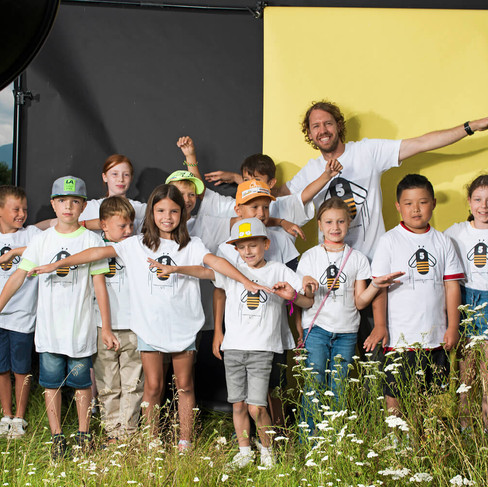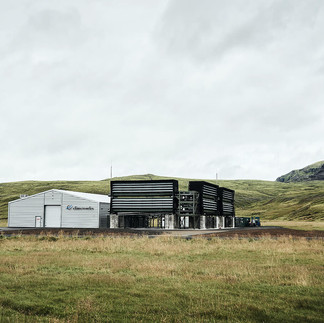The four-time World Champion Sebastian Vettel retired from Formula 1 at the end of the 2022 season. Though we still don't know if the decision is permanent, one thing is clear: he left a legacy beyond racing.
Over the past few years, Vettel became a driving force for change within the sport by becoming increasingly vocal on environmental and social issues such as climate change and LGBTQ+ rights. The driver once said "I'm not doing these things to just have people look at it.” Until recently, he was known for being the only F1 driver who didn’t have social media but that did not stop him from using his position to make his thoughts heard. Joining social media only amplified his already established voice. He continues to use his platform to speak up and draw attention to the changes he wants to see both outside of and within the Formula 1 sphere.
Vettel literally wore what he preached
Sebastian Vettel continuously wore important messages on T-shirts and his helmets to protest and shine a spotlight on global and local issues. Here are some of the iconic helmets designed by the artist Jens Munser that Vettel used during his career:
Source: Sebastian Vettel helmets at sebastianvettel.de
"Rainbow," which he wore in the 2021 Hungarian GP to protest local legislation against LGBTQ+ rights (not to be confused with the "Rainbow" helmet he wore in Singapore 2022).
"Water = Life" to raise awareness around water pollution.
"Save the bees" highlights the importance of bees' role in the world.
"Stop mining tar sands" to protest the environmental impact of mining sand tars in Canada.
"Miami: First GP underwater" to rush climate action, as Miami is predicted to be underwater due to the effects of rising sea levels associated with climate change.
"No war" to protest the Russo-Ukrainian War.
Source: #raceforwomen Jeddah at sebastianvettel.de
In 2021, Sebastian Vettel hosted a women-only karting event in Jeddah, Saudi Arabia, to pass on some of his knowledge and experience in racing. It was an impactful event because, until very recently, women were not allowed to drive in the country. Eight young women with different levels of experience and backgrounds participated in the event. Vettel was inspired by their stories and positivity in facing the changes in Saudi Arabia.
Vettel spent the COVID-19 pandemic working on an organic farm
When the pandemic delayed the 2020 F1 season, Sebastian Vettel worked as an intern at an organic farm to learn about agriculture. He became interested in the topic through nutrition, so why not take advantage of the lockdown to do something nice for the planet?
Save the Bees
In 2021, the driver participated in a school competition to educate about biodiversity and encourage kids to take action. Students from multiple schools in Austria built bee hotels shaped like F1 cars, and Sebastian Vettel selected the winning school. The kids constructed the bee hotel using natural materials such as bamboo canes and pine cones. A year later, the driver got together with the winning children to see whether the bees and insects had accepted the hotel. Sebastian Vettel was impressed, "Not only has it been accepted, but it is "completely booked"! It looks like we will have to add a few more rooms to it!"
Source: Save the Bees @ Spielberg at sebastianvettel.de
Still supporting diversity and species protection, in 2022, Sebastian Vettel joined the "Keep the Bees Humming" project, teaming up with Austrian singer Andreas Gabalier, to gift one million flowers to Germany as part of the BEESandAPPLE project.
Race Without Trace
On the 30th anniversary of Nigel Mansel's win at the 1992 Silverstone Grand Prix, Vettel drove the winning racing car, the FW14B, using carbon-neutral fuel. The four-time World Champion wanted to honor Mansel - who also raced under the number 5 - in a way that created a minimal impact on the environment and a maximum impact on society. So he asked, "How could we run an original 1992 FW14B in a fully sustainable way?"
The answer was in the partnership with P1, a European company that produces carbon-neutral fuel (CNF). In theory, CNFs don't add carbon dioxide to the environment as they work in cycles and use carbon already in the atmosphere. The fully performing fuel enabled the running of the car without changing the engine. Its cost is still high compared to fossil fuels. For instance, Vettel's team paid 5.95 Euros for a liter of fuel. However, the company estimates that the prices will become cheaper through more efficient production, such as decentralized production and the future abundance of renewable energy.
Cleaning up in Silverstone
One year earlier in 2021, Vettel stayed behind at the British Grand Prix to clean up litter in the grandstands of the Silverstone circuit. The four-time World Champion said, "I think it is important that we all respect the environment and don't rely on other people to clear up after us. We have to start somewhere and each one of us can make a difference now".

Source: Please don't litter. Keep it clean at sebastianvettel.de
While in the UK, Vettel also visited GRUNDON, one of the UK's most significant Waste Management facilities, to learn first-hand about recycling and other waste management techniques. One nice thing to highlight is that the company helped recycle the waste collected from Silverstone.
Formula 1,5° The Challenge
Source: Formula 1,5° The Challenge at sebastianvettel.de
Later that season in September, the driver visited the opening of the Climeworks Orca plant in Iceland, not only the first of its kind but also the world's first and largest climate-positive direct air capture and storage plant. According to the plant's information, they can capture 4,000 tonnes of CO2 per year and store it permanently using a natural mineralization process. Vettel said, "There is no time to waste, and new green technology like this is an important instrument that can help against climate change."

Source: Aston Martin, 2022





























Comments